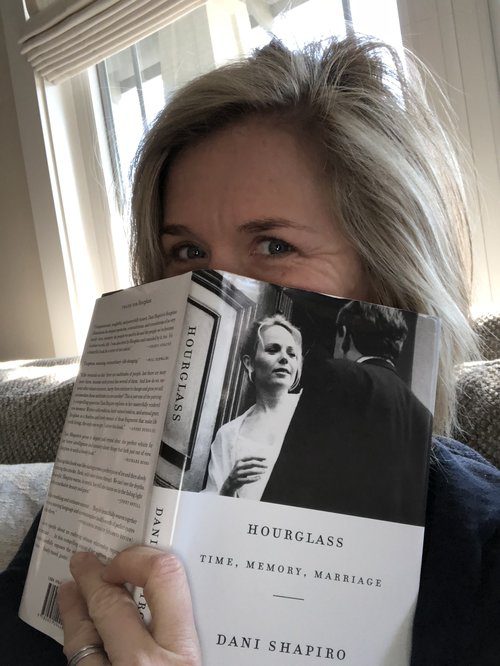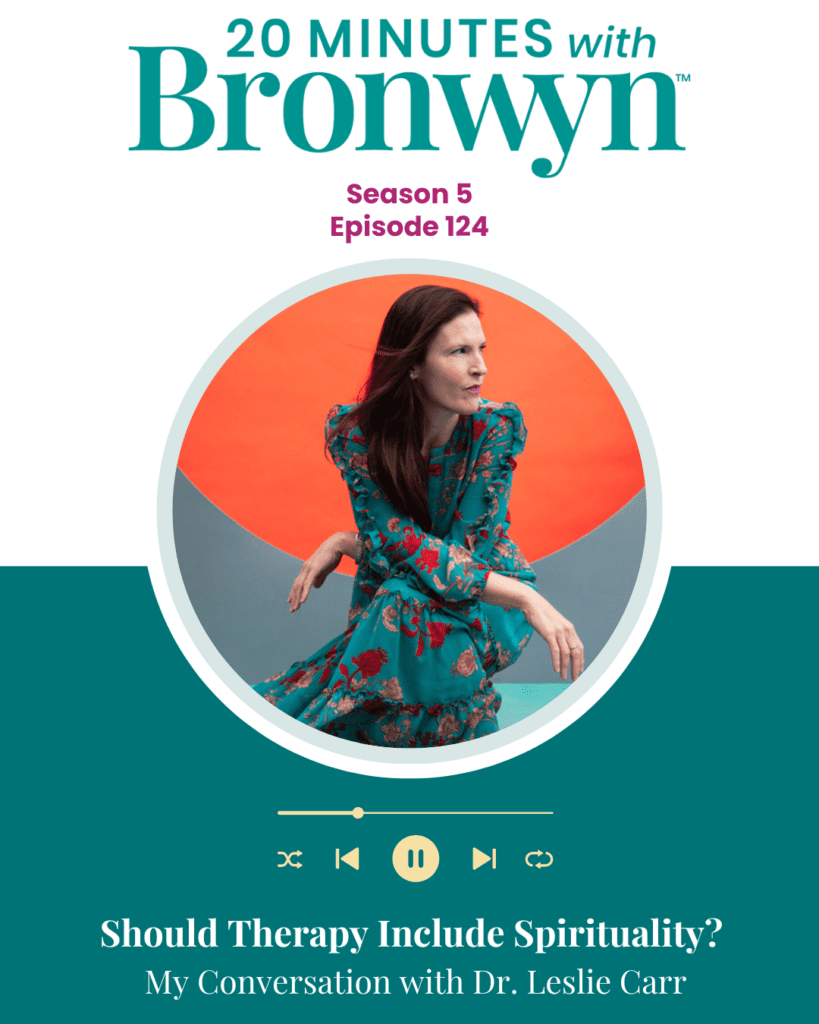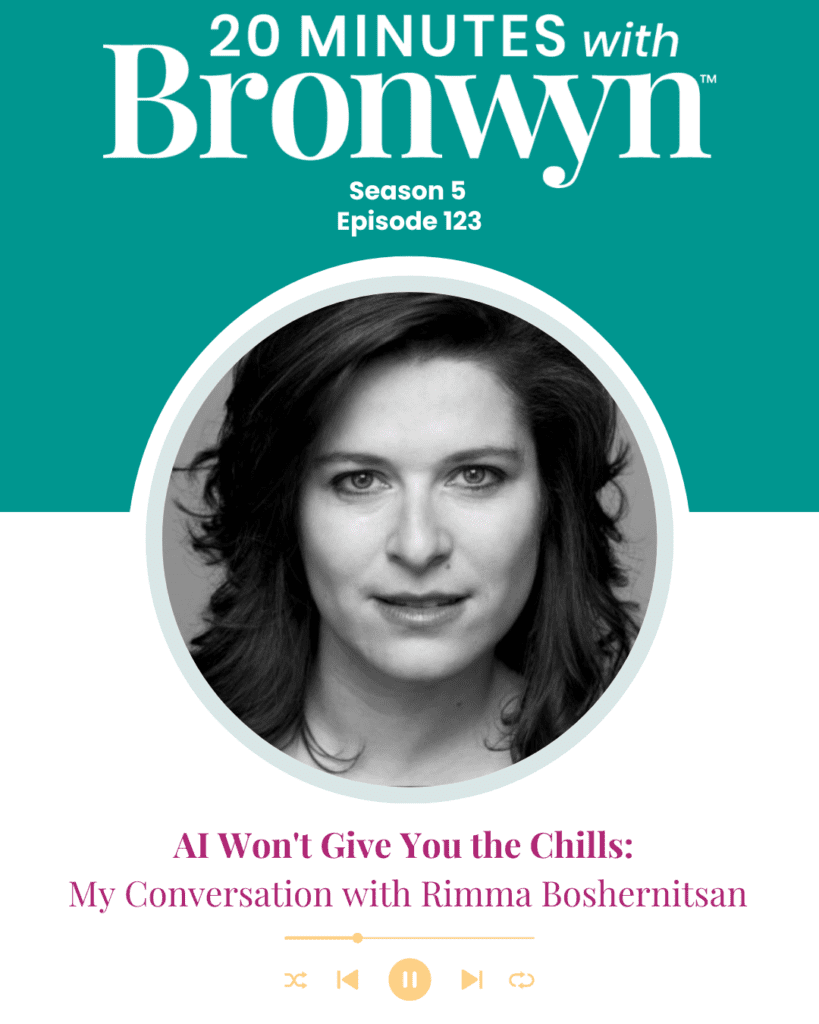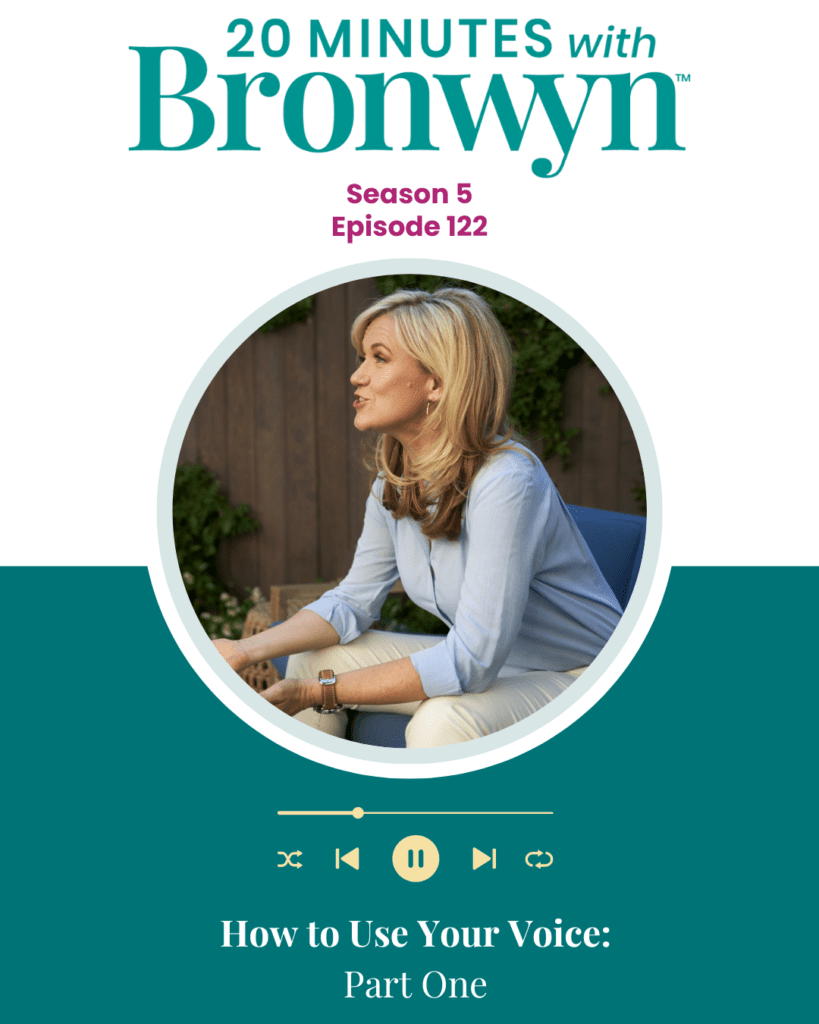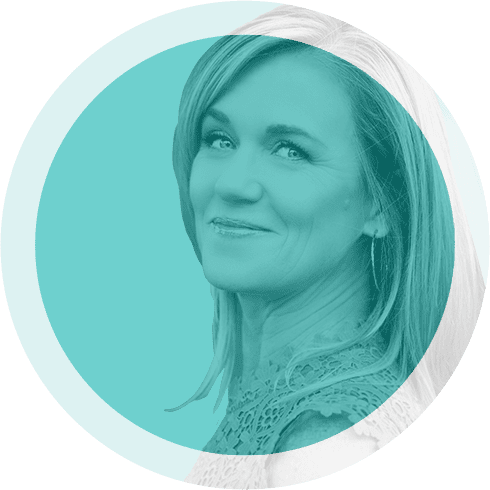2017 was a year of indiscriminant literary hook ups… hardly the serial reading monogamy I usually engage in. I attribute this to some really poor book choices I made, which lead to me attempting (and then abandoning) way too many books. But despite the overabundance of meh storylines and one-night nightstand stands, there were some OMG reads scattered in there as well.
These are the OMG Books of my 2017. Some are old, most are new, but each one made my heart race, melt or break with its word wizardry, plot twists, and teachings (I effing love a good self help book).
Fiction
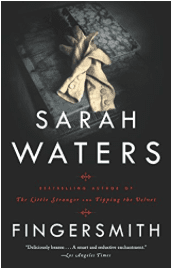
Fingersmith, Sarah Waters
This story is set in Victorian England, and follows the interconnected fates of two women—one poor, one rich. It is everything you need a Victorian thriller to be— atmospheric, creepy, sexy (in that repressed kind of way), and yet completely original. I found myself shouting out loud in an airport the words NUH UH! I DID NOT SEE THAT ONE COMING. The best part? A SUPER satisfying ending.
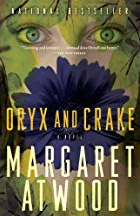
Oryx & Crake, Margaret Atwood
My annual booklist wouldn’t be complete without some measure of dystopian mayhem. I love to read about civilization in its post-shit-hitting-fan form. In Atwood’s story, the cause of the breakdown of civilization is hardly surprising (environmental degradation, food shortages and bizarre scientific solutions to said food shortages). What makes it intriguing is the morality of navigating this world, and the complicated relationships that exist inside of this tentative morality. Love is a strange thing in a world that is collapsing in on itself, and I followed Atwood into this failing world and emerged with a sad sense of wonder.
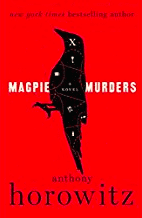
Magpie Murders, Anthony Horowitz
I read this in 2 days on a trip with my family to Kona, Hawaii. Magpie Murders is a murder mystery within a murder mystery. An editor receives the latest manuscript from her publishing house’s most prolific (and lucrative) author. When the author dies, and our heroine is left with a gripping but incomplete manuscript, a series of unfortunate and riveting events ensue. It blends the world of publishing and murder mystery/suspense writing with the micro-universe of what seems bucolic and sweet—a countryside village. I devoured this book, and sipped my Kona mai tais secretly wishing I were drinking English breakfast tea beside a fire.
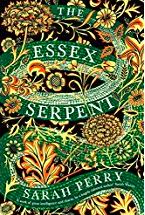
The Essex Serpent, Sarah Perry
I have to admit, I bought this novel thinking it was a fantasy situation, but it is far more complicated and interesting than the title would suggest. The heroine of this novel—Cora Seaborn— is one of my new favorite characters in all of fiction. She is a Victorian English woman (again?!) newly freed of an abusive husband, who is now in possession of a small fortune. As a result, nothing binds her to “civilized” society, and so she is free to pursue her interests with her autistic son (by today’s reckoning) in tow. Cora is a naturalist and an amateur scientist, and sets out in search of a serpent rumored to be terrorizing the town of Essex. Ultimately, this novel is about love, attraction, radical authenticity, and how we cling to both religion and science in order to feel safe. The Essex Serpent let’s us ponder the cost of personal freedom through these characters, and we watch to see just how far each will go in pursuit of their truest desires and impulses. This line will stay with me for a long time:
“Not even knowledge takes all the strangeness from the world.”
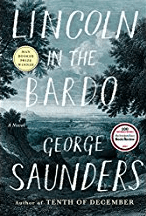
Lincoln in the Bardo, George Saudners
Damn. What can be said about this book?? It is surreal and tender and extremely weird, and I read it in 24 hours thanks to a trip to Chicago. You’ve likely heard about this book already, but in case you haven’t, it’s about the days just before and after the death of President Lincoln’s son, Willie. We witness Willie’s experience of the afterlife, but also eavesdrop on Lincoln as he processes not only his son’s death, but the death of so many during the ghastly war he seems to be losing. Willie and Abraham Lincoln are supported by some very compelling characters, nearly all of them ghosts. These poor spirits live in a kind of pathetic denial, making what meaning they can of the terrible half-life they seem doomed to live out. Lincoln’s grief over his son’s death causes a scene in the graveyard that is truly unforgettable.
This passage is just a taste of George Saunders’ genius writing:
Only then (nearly out the door, so to speak) did I realize how unspeakably beautiful all of this was, how precisely engineered for our pleasure, and saw that I was on the brink of squandering a wondrous gift, the gift of being allowed, every day, to wander this vast sensual paradise, this grand marketplace lovingly stocked with every sublime thing.
I mean… this book is a treasure. A weird, wonderful treasure.
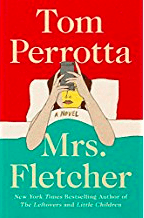
Mrs. Fletcher by Tom Perrotta
This wins for Best Easy-But-Yet-Deep Read of 2017. Perrotta also wrote Little Children and The Leftovers, which are well worth a read if you haven’t already. His characters are incredibly specific and rich, but also familiar, as if I myself could be the main character, or maybe the woman who sits next to me at my son’s soccer games. Mrs. Fletcher is a divorced, freshly minted empty nester dealing with a few unpleasant awakenings. She finds out that her son isn’t the “good man” she thought she had raised. She picks up a pernicious porn addiction, and a newly discovered sexual interest in… women.I love stories that pull the rug out from under every day people, and allow us the pleasure of watching them not only survive, but make meaning out of a post-rug-pulled-out reality. You do you, Mrs. Fletcher.
Memoir/Non-Fiction/Self Help
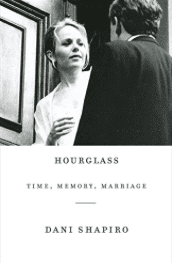
Hourglass: Time, Memory, Marriage by Dani Shapiro
I am fascinated when a writer can make every day life experiences sound compelling, authentic and rich. Not that Dani and her husband aren’t extraordinary. They are. She’s… well, Dani freaking Shapiro, and he’s a former foreign correspondent turned screenwriter. But it’s not their individual accomplishments that make this memoir so good. It’s seeing in words the inexpressible experience of tethering your life to someone. Shapiro captures what it’s like to be on a long term journey with your polar opposite. She describes that terrible, gorgeous juxtaposition of loving someone deeply while being driven nearly insane with frustration by their habits, long-held beliefs and behaviors.
I read the following passage out loud to my husband, and we both had tears in our eyes when I’d finished:
I hold my life with M. carefully in my hands like the faience pottery we brought back from our honeymoon long ago. We are beautiful. We are not new. We must be handled with care.
To me, marriage has always felt solid and irreversible while at the same time fragile and in need of safeguarding. These two seemingly opposing experiences are lovingly rendered in Hourglass.
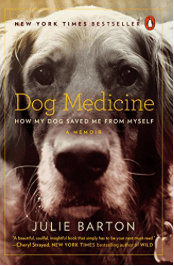
Dog Medicine: How My Dog Saved Me From Myself by Julie Barton
When we lost our golden retriever, Ellis, last September, I was surprised by the pain of it. My husband and I held that mountain of a dog as he took his last breath, and we keened, wailed and howled, not caring what we sounded like to the people in the waiting room of the vet. Our friend Abby gave us Dog Medicine right after he died, and I avoided it for almost 9 months. It was just too painful to revisit any aspect of Ellis’ life or death. And then, on that same trip to Kona when I finished The Magpie Murders in record time, I needed another book and my husband handed me Dog Medicine. I was hooked before I had finished the second page. Dog Medicine takes place against the backdrop of the 90s—my coming-of-age years—and reminded me of that liminal phase of life—post-college, pre-career. Julie Barton’s writing is straightforward and brave, and I came away from this book with deep respect for those who struggle with serious depression, and a newfound appreciation for the role animals play in our emotional survival. Dog Medicine healed both my husband and I, and two months after we’d finished the book, we brought home our sweet Bowie. Here he is at 3 months old:

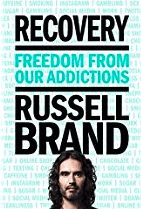
Recovery: Freedom From Our Addictions by Russell Brand
NEWSFLASH: Russell Brand can really write. Like REALLLY write (I think everyone else knew this but me). I consumed this book via audible so that I could hear his crazy accent and get the full effect of the Russell Brand Experience— and I highly recommend you do the same. I read it not because I’m struggling with a drug or alcohol addiction, but because I’m struggling with a stimulation addiction. Podcasts. Compulsive email/ Facebook/Instagram checking. I feel like a rat in a cage perpetually chasing that next dopamine hit. Reading Recovery unlocked powerful tools for freeing myself of this compulsion, and reminded me that we are all addicts, and that the trick of living is to find a way to LIVE, despite our addictions and compulsions. Brand’s writing style seems borne of an ability to pay close attention to the raw pain and surprising beauty of a broken world, and reminded me of my favorite Roald Dahl quote:
…watch with glittering eyes the whole world around you because the greatest secrets are always hidden in the most unlikely places.
Side Note: Recovery makes a fairly convincing case that there may be hope for hardcore narcissists. Russell Brand writes honestly about what it’s like to manage against the constant instinct to use people, seeing them as expendable resources in his pursuit of pleasure. He doesn’t claim victory, but after reading his stories, I couldn’t help but believe that he’s making progress.
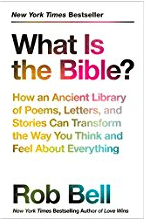
I consider myself pretty devoted to a spiritual practice. But truth be told: the Bible and I have a tentative relationship. The Old Testament is full of passages praising a vengeful, jealous God who gets off on destroying villages and ruining lives just to “test” His faithful followers. The New Testament is a LOT better thanks to Jesus’ message of love and compassion, but we still find passages from good ol’ St. Paul that would have me marching in the streets:
“Women should remain silent in the churches. They are not allowed to speak, but must be in submission, as the law says.” – First Letter to the Corinthians
What do you do with a passage like that one??
What is the Bible? gave me a completely different lens through which to read the Good Book. Even if you are a committed atheist, this is a brilliant way to understand what is arguably the most influential book in human history.
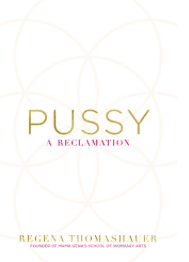
Pussy: A Reclamation by Regena Thomashauer
2017 seemed like a great time to reclaim the word pussy, given that we now have a Pussy-Grabber In Chief sitting in the Oval Office. But this book is not just a feminist re-appropriation of a word that’s been dragged through the mud. Pussy is about being turned on not just in a physical sense but also in a spiritual, intellectual and psychological sense. It’s about creating a life that is purposeful and pleasurable. Regena Thomashauer, or Mama Gena as her fans know her, is a pioneer in the notion that being a woman is the privilege of a lifetime. We are bombarded every day by messages reminding us of just how hard it is to be a woman, as evidenced by the #metoo movement and the tsunami of fresh examples of patriarchy holding us back. Mama Gena doesn’t deny this. Instead she calls us to make a choice: We can choose to live juicy, amazing lives, or we can choose to be trapped by the limitations placed on us, as well as those we place on ourselves. Pussy Power, y’all. It’s high time we take it back, and start enjoying this beautiful life we’ve been given.
As I look back at 2017, I see terrain filled with peaks and valleys. Some of it was bliss, some of it nightmarish. But consistent through it all were books-as-companions. We are never alone if we have a good story to read, and interesting ideas to consider.
May 2018 bring each of us strength, courage, and a boatload of good books.
